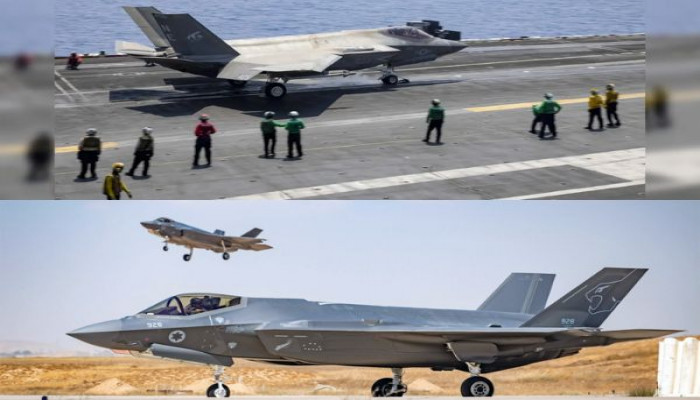China holds 'Kill Switch' of US F-35 and advanced weapons through rare earths monopoly
- In Reports
- 08:00 PM, Jun 02, 2025
- Myind Staff
The United States planned to rely heavily on the F-35 Lightning II stealth fighter if it entered war. The aircraft’s makers described it as the most advanced combat jet currently in active service worldwide. Ten countries had already deployed the fifth-generation fighter. Another ten countries awaited delivery of their first F-35 jets. Rumours claimed the F-35 had a kill switch. The US military and Lockheed Martin strongly denied these rumours.
A new revelation showed that the F-35 did have a kill switch. However, the United States did not control it. Instead, China, America’s main rival, held the power to activate the kill switch. This kill switch could disable the entire F-35 program. China could also cripple several other US military platforms if it chose to use this power. The US had no defence against such a move.
China could disrupt platforms like the Boeing F-47 sixth-generation fighter, announced by President Donald Trump in May 2025. China could also affect the US Navy’s Virginia-class submarines, Arleigh Burke-class destroyers, armed Predator drones, Tomahawk cruise missiles, JDAM smart bombs, and advanced radar systems.
China dominates rare earth minerals and critical elements. These materials played a crucial role in almost all advanced weapon systems. China led global production, consumption and export of rare earths. The US depended heavily on these supplies. Over 80 per cent of US weapons systems use rare earths and critical elements.
If China stopped supplying these materials, the US defence industry would grind to a halt. The Pentagon would lose access to key components. China controlled more than 90 per cent of the world’s rare earth processing and refining. It produced 98.8 per cent of the world’s refined gallium, essential for GPS and radar systems.
American aircraft and missiles used magnesium. Rocket propulsion, lasers, and nuclear fuel processing required graphite and fluorspar. China held the largest refining capacity for all these minerals.
During tariff talks initiated by President Trump, China used its rare earth dominance as leverage. In 2023, China restricted exports of eight gallium-related and six germanium-related products. In 2024, it also limited antimony exports. Since December 2024, China has completely banned exports of gallium, germanium, and antimony to the US. It also restricted tungsten and tellurium exports.
After President Trump announced steep reciprocal tariffs effective April 2, 2025, China retaliated two days later. It restricted exports of medium and heavy rare earth elements, including samarium, gadolinium, terbium, dysprosium, lutetium, scandium, and yttrium. The restrictions included magnets and other rare-earth products.
If China continued this ban, many of America’s most advanced weapons would become useless. These materials were vital for combat aircraft, missiles, naval ships, submarines, and radar systems.
An F-35 engine, avionics, munitions, and radar required more than 400 kilograms of rare earths. Virginia-class submarines used about 4,200 kilograms. Arleigh Burke-class destroyers used around 2,360 kilograms. Cruise missiles, armed drones, smart bombs, and radars depended on rare earth magnets for propulsion, targeting, and guidance.
With the F-47 fighter in development, demand for rare earths and critical elements would rise further.
Almost 81 per cent of the antimony used in F-16 fighters and Minuteman III nuclear missiles was refined in China, though most of the antimony came from Australia. The US exported many critical minerals to China for refining and then re-imported them.
No current technology could replace rare earths and critical elements in advanced weapons. China’s near monopoly on refining presented a clear threat. The US military had no countermeasure against this “kill switch.”







Comments